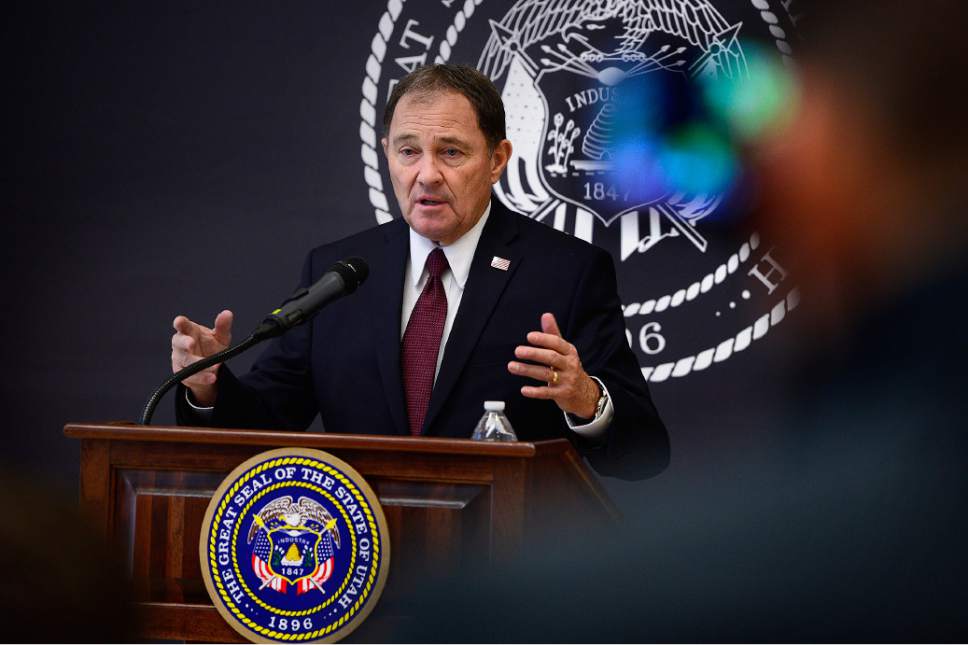This is an archived article that was published on sltrib.com in 2017, and information in the article may be outdated. It is provided only for personal research purposes and may not be reprinted.
As President Donald Trump signed an executive order Friday to temporarily suspend refugee resettlement in the United States and visa entry from seven countries with majority Muslim populations, Utah Gov. Gary Herbert said these ideas may be misguided.
"We have a lot of people from Syria that are probably running from terrorism that aren't terrorists," Herbert said. "More important to me is who they are, what they are — as opposed to where they come from."
The governor has a history of supporting refugees. After Paris bombings when most Republican governors said they would refuse Syrian refugees without more stringent screening, Herbert said they were still welcome in Utah — but the state would continue to work to ensure proper screening.
At his inauguration this month, he asked a refugee from Sudan to offer the prayer and then talked about the benefits that refugees bring.
He repeated some of those thoughts Friday.
"Utah has always been a very welcoming state for refugees, for immigrants," he said. "We appreciate the diversity they bring, and certainly they are part of the fabric of our state."
The executive order signed Friday blocks all refugees for 120 days and indefinitely halts them coming from Syria. It also suspends visa entry from Syria, Iran, Iraq, Somalia, Libya, Sudan and Yemen pending establishment of a new "extreme vetting" process.
"We want to ensure that we are not letting into our country the very threats that our soldiers are fighting overseas," Trump said at the Pentagon.
The presidential order follows another that seeks to enlist state and local police to help enforce immigration law, to beef up deportation forces and to build a wall on the U.S.-Mexican border.
Herbert also said the state will look closely at the immigration order. Salt Lake City officials said Thursday they will not enforce federal immigration law and that to do so would erode trust and hamper enforcement of other laws in immigrant communities. Salt Lake County Mayor Ben McAdams said Friday his county, too, would buck Trump's immigration moves.
"We'll do our part as a state to help with that issue, but it depends on what they are going to ask us to do and how," the governor said. "We'll respond to that."
He added that immigration is a federal issue, and that the state tried to step in a few years ago because of federal inaction — but was sued by the federal government for that and lost.
"The federal government needs to step up and resolve that issue. They've been talking about it since Reagan, for heaven's sake, without any resolution," he said.
"I'm also a little tired of everyone talking about the wall or the fence" on the Mexican border, Herbert said.
"We all agree we should secure the borders. I don't think anybody disagrees with that. But what I don't hear enough talking about is the gate. It's not just the fence. It's the gate."
He said a main problem is fixing how people may legally enter the country, which may also help to resolve illegal immigration.
"The gate doesn't seem to be working very well," he said, "and is something we ought to address."



